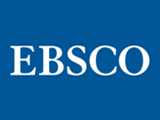
Koha is an ILS created by librarians for librarians. EBSCO Information Services is a family-owned company dedicated to solutions that bring real improvements to libraries. Together, the two are working to provide a viable web-based, open source ILS for libraries of all types. Koha libraries reached out to EBSCO for support of some important projects, and EBSCO agreed to partner to accomplish the following for Koha:
- Strategic upgrade of of Koha’s core full-text search engine technology to ElasticSearch; ensuring long-term viability
- Increased functionality and accuracy of facets
- Development of a browse function (author, title, subject, call number)
- MARC to RDF crosswalk enhancing capability of linking to online data repositories (linked data)
- Greater flexibility in ingesting metadata schemes beyond MARC21
- Improved speed
- Enhanced patron functionality API access
The financial support from EBSCO will be provided via the Koha Gruppo Italiano/ American University of Rome, which will be assisted in this development and integration by key Koha contributors ByWater Solutions, Catalyst IT, and Cineca. In keeping with open source tradition, these enhancements to Koha are truly open source and will be available for others to use, modify, and re-distribute.
The two organizations will also be working to ensure full Koha OPAC functionality within EBSCO Discovery Service™ (EDS) at no additional charge for mutual customers.
EBSCO Executive Vice President Sam Brooks says “We very much believe in partnerships with ILS vendors, and we are an active supporter of open source technology for libraries. We are a member of Kuali OLE, and believe that both OLE and Koha are excellent options for libraries worldwide.”
Sebastian Hierl, Ph.D., and Drue Heinz Librarian of the American Academy in Rome, which is part of the Koha Gruppo Italiano, commented: “EBSCO is the logical partner for such an endeavor. They are powerful advocates of both open source and open access. The Koha community is excited to have their involvement and strong support.”
EBSCO is also a strong supporter of open access, indexing more than 11,000 open access journals in its databases, and supplying substantial traffic to open access publishers. In addition, EBSCO offers free worldwide access to five databases, available at www.LibraryResearch.com.
Work on the enhancements mentioned above are expected to be completed by the end of 2015.
























